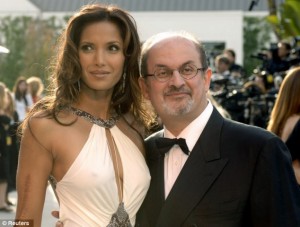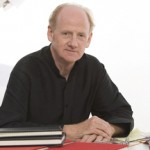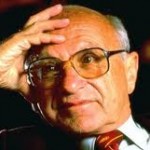[5-minute read]
Eh? What’s that? Time to put on red ‘n’ white clothes and fly the maple leaf flag on our barren flagpole?
Maybe so! Lady Laughter and I did finally slide our narrower (and much nimbler) son out of our bedroom window in early May to take down the tattered flag that barely survived the winter. It was a drapeau of Earth, one of those photos-from-space of our little blue planet, and it had come to be a horrible reminder of the war-torn regions and generally fraying tapestry of the human world’s tentative movements toward oneness. While I do think that we obsess, in an unseemly and hugely discouraging way, about our destructive tendencies – sudden, violent, other-making, spectacular – and that a little more dwelling on the pleasant things of life – construction, kindness, vision, unity – would do us enormous bunches of good, that disintegrating rag of blue and green was a WAY too obvious metaphor. And to take the symbolism farther: we didn’t have a new Earth banner to put up, either.
And we totalled our car, got the gardens underway, dealt with contractors, listened to podcasts, and many other lively pursuits. My bride, it should be said, is a working person, while my retirement has me even less tethered to timelines that don’t involve high school hoops. June came. Events occurred. And then we went east. (Quebec, New Brunswick, Prince Edward Island, Nova Scotia, Maine, Quebec. It was lovely, thanks!)
We got back to Ottawa, car-worn and happy, on June 30. I woke up to Canada Day, none too early, and remembered that we did have a Canuck flag tucked away in a drawer. We haven’t flown it for a while, certainly not since a convoy of “freedom”-seeking protesters tied our city in knots for a while back there. For most of my life, Olympics aside, my fellow Canadians and I have not been big on flag-waving. Even our recent afternoon drive from Bar Harbor, Maine to the Quebec border, which is predominantly middle o’ nowhere forest, was notable for how much more likely American homes, businesses and every second telephone pole in the woods were to fly the stars and bars. Such conspicuous and rampant patriotism doesn’t suit us; at least, it doesn’t suit me.
However, a time came when disgruntled, irritated, peevish and me-first (me-only) Canadians took to flying our flag from trucks (alongside various iterations of “F— Trudeau!” and “government SUCKS, ‘cuz, like, vaccines and taxes and shit!” and you’re not the boss of ME! signs) and cars, making the humble red-and-white Maple Leaf suddenly a signal of rejection, it seemed to me, of the traditional Canadian virtues. Peace. Fairness. Good government. Order. The common good. Loyalty. A sense of proportion. Politeness. And, since the ‘70s or so, ethnic diversity has also become our very good friend, at least the idea of it. We used to call it multiculturalism, and some folks still do; unity in diversity is even better.
It bugged me that I felt unable to fly the red ‘n’ white because of what I uncharitably thought of as its (mis)appropriation as the flag of selfish yahoos. Mind you, even before the notorious “trucker convoy” protests, I had reservations. I wasn’t eager to be more jingoistic, in the American “my country right or wrong” vein. I was increasingly aware of associations that flag-flying might have for, say, Indigenous peoples or Black Canadians. Many citizens seek greater truth-telling. Many call for reconciliation between the undoubted pride and good fortune that most of us feel to be Canadian, and the unquestionably unjust choices that our country and its Eurocentric majority peoples have too often made. Beyond that, I have long been working to nourish the mindset, and the accompanying lifestyle and actions, of a global citizen. You know, trying to see all humanity as one family, that not-so-old idea.
So, it’s been a few years since the Maple Leaf flew from our second floor pole, but Happy Canada Day anyway! Eh? And yes, despite his even more rampant youthful discomfort with The Whole Canada Thing, my lanky son was out on the roof again earlier today to do his father’s diffident bidding. There’s a red maple leaf, about 4′ x 6′ (and no, I don’t know what that is in metres!) waving outside my window once again. There’s a part of me that feels I should be lettering a bedroom-window disclaimer of all the things that we *don’t* mean in letting our not-so-freaky flag fly. I may yet.
In the meantime, we don’t use the Leaf to signify any of these things. 1. An undying loyalty to the red-and-white of the Liberal Party of Canada. (I vote, but partisan politics is all the more obviously the divisive force that I have long believed it is. In this and other degrading ways, we’re getting more like the Americans.1) 2. A belligerent antagonism toward the Liberal Party of Canada. (Ditto.) 3. A resentment of paying taxes. (I am often impressed, despite bloat and inefficiency, by the services our governments provide, education and health care and snow removal and so much more, for just about everybody.) 4. Some petulant desire to have our country be the more male-dominated and white-skinned place that it used to be. (I intend no self-hatred when I say that unipolar ethnicity and mouldy conceptions of masculinity can be boring, to say nothing of the hateful and retrogressive extremisms they can produce.) 5. A bitter rejection of broader loyalties, and signs of a planetary order. (What, you’d prefer planetary disorder?! The Guardian of the Bahá’í international community called all to a greater consciousness of the oneness of humanity, but also affirmed the value of “a sane and intelligent patriotism”, in which affection for one’s country was no impediment to loving the world.) So no, none of that.
1 And just to be clear: there are all kinds of ways in which Americans are marvellous. (Never forget.)
It’s my country’s national day, and there’s still lots to be grateful for. Canada still stands for worthwhile things, and it is composed of magnificent and favoured geography and a tonne of mainly beneficent folk. It’s my country, and I’ll party if I want to. Still, I probably won’t join the masses on Parliament Hill for the concerts, the boozy downtown celebrations, or gaze in childlike wonder at the fireworks displays, as magnificent as they will no doubt be. Some of that’s just being an older dude, and some of it is not really being much good at celebration in general. Maybe I’ll read an Alice Munro short story, or crack open J.R. Saul’s A Fair Country: Telling Truths About Canada (2008), a way of thinking about my place in the world, one that I’d like to understand better. Let’s make reading great again!
But then again, our garden needs some attention, and cutting grass is a way of “standing on guard”, I suppose. I foresee a long walk along local streets, after all our tramping about down East. There will be more than the usual frequency of friendly nods and waves. And I’ll maybe buy myself an ice cream sundae, because Canada Day comes but once a year…





